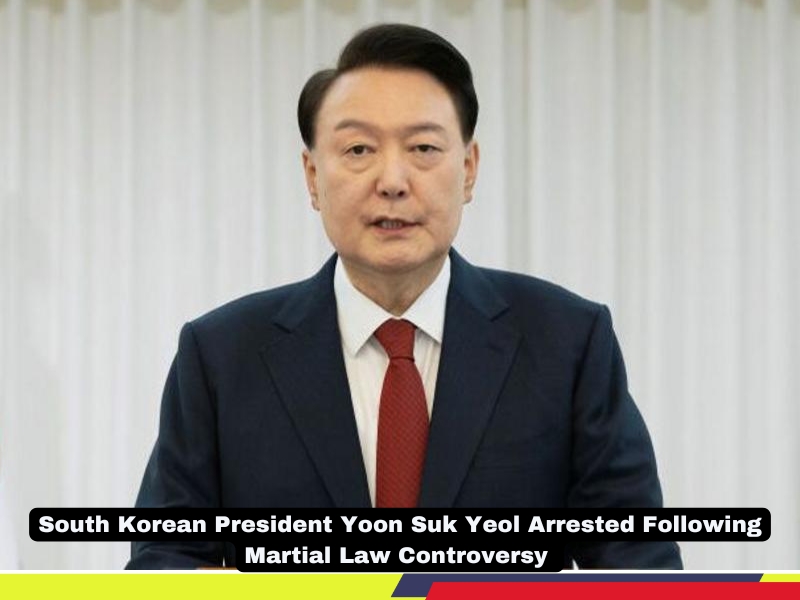In a historic turn of events, South Korea has arrested sitting President Yoon Suk Yeol on charges of insurrection following his controversial attempt to impose martial law. This unprecedented arrest has sent shockwaves through the nation, marking a critical moment in South Korea’s political history.
The Arrest
President Yoon was taken into custody by the Corruption Investigation Office (CIO) after an intense standoff at his residence. The confrontation lasted several hours, with authorities resorting to ladders and wire cutters to breach security barriers set up by Yoon’s security team and his supporters.
Yoon, who had been holed up for weeks following a failed arrest attempt earlier this month, agreed to the interrogation, stating, “Even though it is an illegal investigation, I chose to cooperate to prevent any unsavory bloodshed.”
Unprecedented Developments
This marks the first time in South Korea’s history that a sitting president has been arrested. The dramatic escalation comes as the nation grapples with political turmoil surrounding Yoon’s actions, including the controversial imposition of martial law. Critics have called his actions a breach of democratic norms, leading to widespread protests and condemnation from various political factions.
Impeachment Trial in Limbo
The arrest coincides with the ongoing impeachment trial against Yoon, which was abruptly halted after only four minutes due to his absence. The trial will determine whether he will be permanently removed from office. The charges of insurrection add further gravity to an already volatile situation, potentially reshaping the political landscape of South Korea.
Public and Political Reactions
Public opinion remains sharply divided. Supporters of Yoon argue that the investigation is politically motivated, while critics claim his actions threatened the country’s democratic fabric. Protests have erupted across the nation, with calls for both justice and restraint.
The international community is closely monitoring the situation, as South Korea’s political stability is crucial for regional dynamics in East Asia.
What’s Next?
With Yoon now in custody and his impeachment trial underway, South Korea faces a critical juncture. The outcome of the trial and subsequent investigations will likely have profound implications for the nation’s political and democratic institutions.
As the country navigates this historic crisis, one thing is clear: South Korea’s commitment to upholding justice and democracy is being tested like never before.
Stay tuned for updates on this unfolding story.




